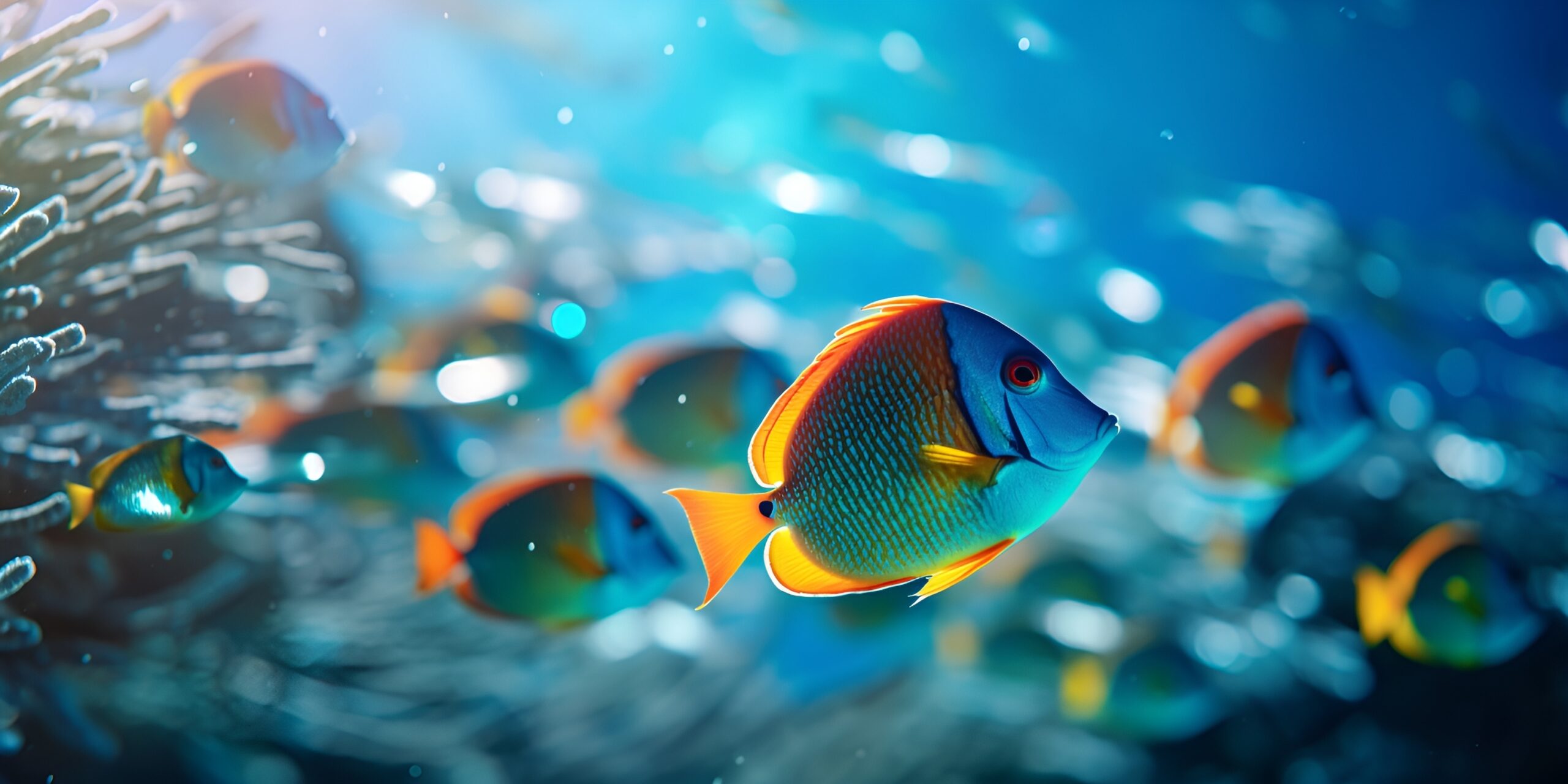The collapse of our oceans will spell disaster for all life on this planet, warns eco theologian Fr Sean McDonagh.
In 2021, Rosamond Naylor an American economist who focuses on global food security and sustainable agriculture calculated that the amount of fish consumed in the world had doubled since 1998. Some marine scientists today believe that it will double again by 2050.[i]
Inland Fisheries Ireland has recently shown that there is a dramatic depletion in the number of salmon in Irish rivers and lakes during the past 20 years. The speed of the decline in the years 1975 to 2022 is frightening as the number of wild salmon inhabiting our rivers and lakes has dropped from 1.7 million to 171,700.
This represents a drop of about 90 percent which is extraordinarily worrying.[ii] Some of this decline is caused by the seas getting warmer and fish such as salmon are moving further north to rivers in Norway and Iceland.
In other parts of the planet the higher temperature of water surrounding coral reefs causing them to bleach. Unless the sea water quickly cools, the coral reefs will not be able to recover. For example, in the Great Barrier Reef off the east coast of Australia, the seventh mass bleaching event has occurred since the late 1990s. Scientists are now wondering how much can reefs take before recovery is no longer possible.[iii]
I remember taking an interest in coral reefs and mangrove forests during my time in Mindanao in the Philippines. I learned that the diversity of life found in the habitats created by coral reefs and mangrove forests is often called the ‘rainforest of the seas.’ About 25 percent of the oceans’ fish depend on healthy coral reefs.
Today, China is still the largest consumer of fish in the world with more than 50 million tonnes of fish consumed in 2017. Other countries such as Brazil, Ghana, India, and Mexico are all expected to double their fish catches by the year 2050. These estimates presume that their economies continue to do well during the next 20 years.
In 2021, aquaculture in Ireland was responsible for 15 percent of total fish production reaching 454000 tonnes. It is interesting to note that wild fish have five times the amount of calcium in them than farmed salmon.[iv] Rosamond Naylor believes that it is plausible that farmed fish, which now represents only 5 percent of the world’s production of fish, will grow by 90 percent in the next three decades.
Others are more cautious. Junning Cai, an economist working at the United Nations Food and Agriculture Organization (FAO), questions whether aquaculture can bridge the gap between future human demand and the supply of fish and shellfish, given the negative images of aquaculture in many countries today.
This is particularly true of salmon farming where sea lice attack wild salmon and are often lethal. Farmed salmon are bred to grow fast and are crammed into cages in the sea. This close contact between wild fish and farmed salmon led to sea lice attacking wild salmon often causing their death. The salmon are fed with fishmeal, vegetable, and animal byproducts and they are often doused with pesticides and given antibiotics.
The health of the oceans is vital for all life on earth. They are facing destruction through overfishing, habitat loss, climate change and pollution, especially from plastic. The United Nations estimates that humankind discharges around 400 million tonnes of plastic into the sea each year which can now be seen in every corner of the planet from the tropics to Antarctica.
Some say that the oceans will carry more plastic than fish (by weight) by 2050. The collapse of our oceans will spell disaster for all life on this planet. Yet, we give these considerations very little thought in our modern politics and economics. Seldom do we hear the well-being of the oceans discussed in either the media or in the Dail. The well-being of the oceans is a poor second compared to climate change where we are encouraged to stop burning fossil fuels which is causing the climate to change.
Finally, Beatrice Crona, a professor in sustainability science at the Stockholm Resilience Centre believes that many people are shifting their diet towards plant-based foods, away from meat. It is recognised that eating meat is a major contributor to climate change.
Currently agriculture is responsible for 37 percent of Ireland’s Greenhouse Gas emissions. We need to reduce our carbon footprint to protect our oceans today. If this generation fails to do that, all future generations will pay for our neglect. The issue is that serious.
Fr Sean McDonagh’s most recent book is: ‘Robots, Ethics and the Future of Jobs‘, published by Messenger Publications. See: https://www.messenger.ie/product/robots-ethics-and-the-future-of-jobs/
[i] Adam Voughon, Big increase in fish demand by 2050, New Scientist, September 2021, page 19.
[ii] Mick Clifford, ‘Inland Fisheries: Ireland’s litany of serious issues is like ‘RTE’ without the celebrities’, Irish Examiner 13th May 2024, page 6.
[iii] James Woodford, ‘Great Barrier Reef pushed to the brink’, New Scientist, 11 April 2024, page 16.
[iv] Nina Massey, ‘Wild fish better than farmed salmon’. Irish Examiner, 21st of March 2023, page 20.

